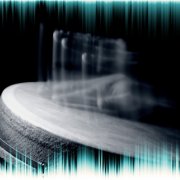"Study finds the brain is biased toward rhythms based on simple integer ratios.
Anne Trafton | MIT News Office
January 5, 2017
When it comes to perceiving music, the human brain is much more tuned in to certain types of rhythms than others, according to a new study from MIT.
A team of neuroscientists has found that people are biased toward hearing and producing rhythms composed of simple integer ratios — for example, a series of four beats separated by equal time intervals (forming a 1:1:1 ratio).
This holds true for musicians and nonmusicians living in the United States, as well as members of a Bolivian tribe who have little exposure to Western music. However, the researchers found that the Bolivians tended to prefer different ratios than Westerners, and that these ratios corresponded to simple integer ratios found in their music but not in Western music.
“Both of these cultures seem to prioritize rhythms that are formed by simple integer ratios. It’s just that they don’t prioritize all of them,” says Josh McDermott, the Frederick A. and Carole J. Middleton Assistant Professor of Neuroscience in the Department of Brain and Cognitive Sciences at MIT and the senior author of the study, which appears in the Jan. 5 issue of Current Biology..."
Read the full story on MIT News from the link below.

